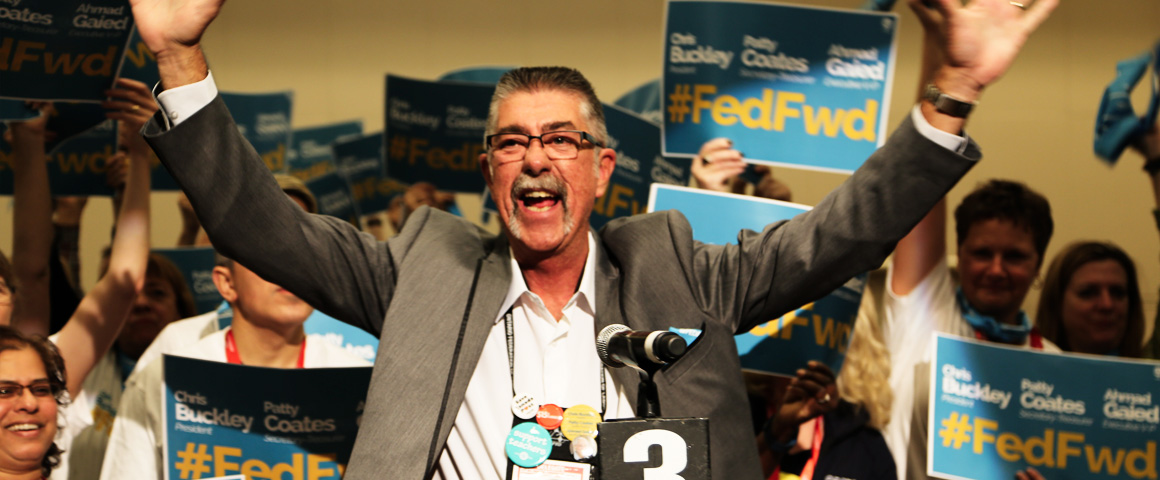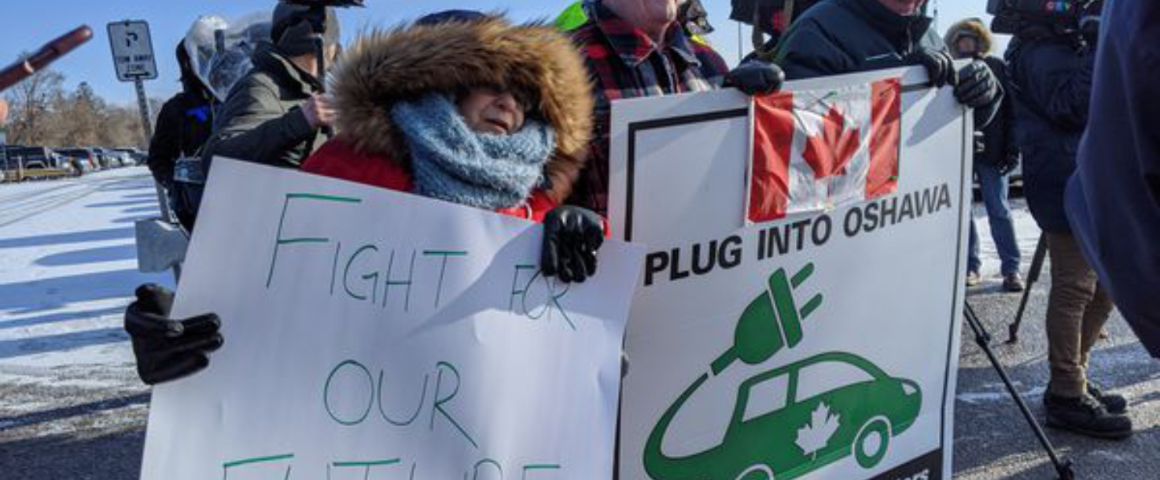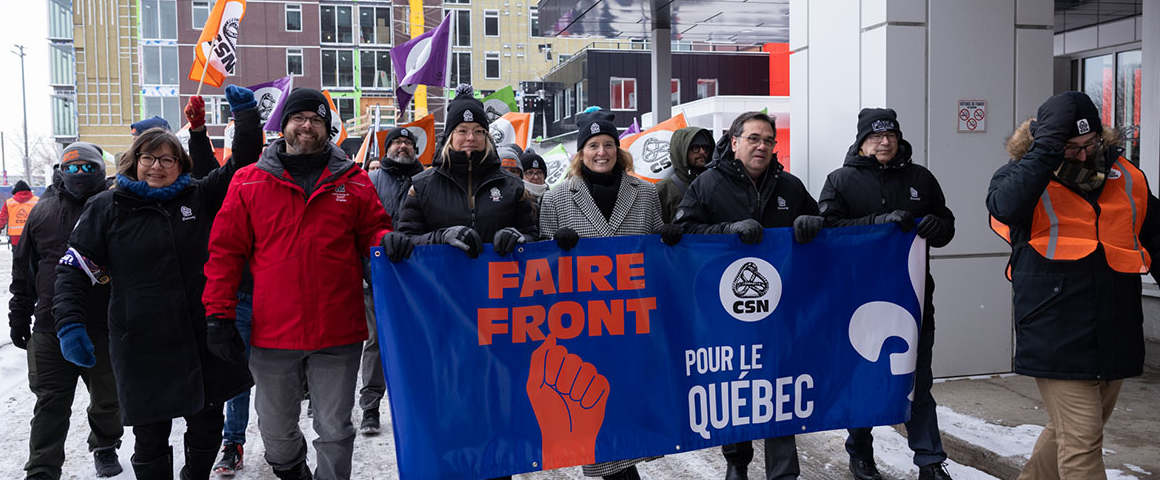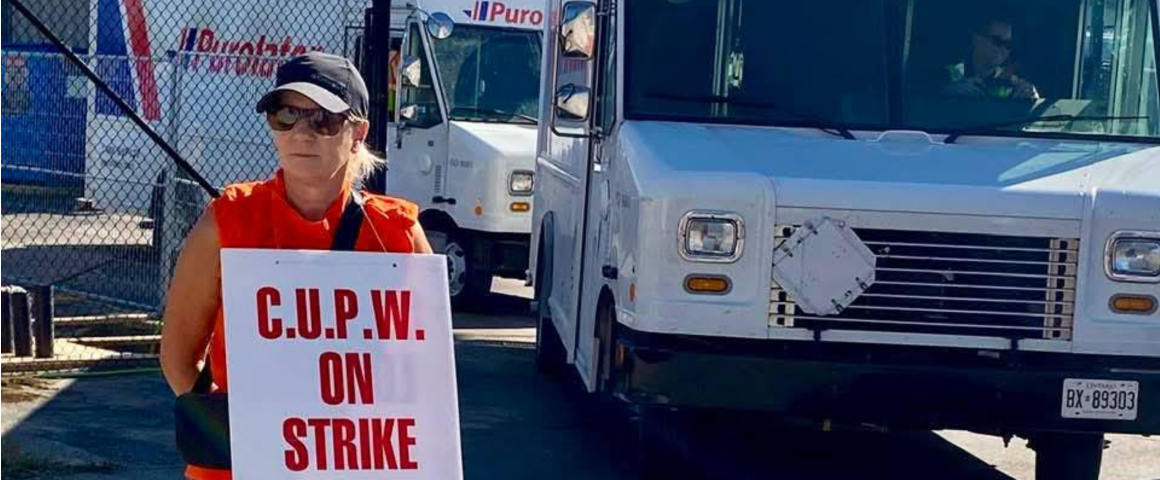PV Ontario Bureau
The 2017 Ontario Federation of Labour Convention is meeting against a back drop of strikes against precarious employment, privatization and underfunding of public services, a desperately inadequate minimum wage, anti-labour corporate trade deals, and related job losses to low-wage jurisdictions.
From the OPSEU college faculty strike, to CUPE’s fights at public libraries and Children’s Aid Societies across the province, to HERE’s $15 minimum wage strikes at campus food service providers, to CUPW’s refusal to distribute fascist material through the postal service, to USW’s struggle against liquidation of Canada’s steel industry, to Unifor’s strike at CAMI to protect jobs and wages in the face of NAFTA – from these and many other examples, Ontario workers are in motion. They continue to face many defensive struggles, but are increasingly shifting onto the offensive by making progressive demands. Increasingly, they are building their collective agreement disputes into political struggles.
In both the public and private sectors, all of this represents an important growth in militancy and political radicalism for Ontario labour.
But is this growth emanating from the Ontario Federation of Labour’s leadership, or in spite of it? Sadly, the answer seems to be the latter.
Two years ago, the OFL Convention passed a 25-page action plan that stressed the need to strengthen the Common Front. It also proposed increasing coordination among affiliates, to achieve a range of goals like organizing new workers.
Unfortunately, rather than build upon the work in the 2015 action plan, this convention has to face the reality that many things agreed to in that plan were not accomplished. The organizing school, for example, was not held. The Common Front has not met – in fact, it has actively been scuttled, sidelining those activists who have a strategic vision for labour, based on class and class struggle.
Instead, the OFL leadership appears to have pursued an action plan based on shoulder-rubbing, photo ops and backroom lobbying of the Ontario Liberals.
The OFL will be proud of the work done on its Make It Fair campaign and on the modest but important employment reforms achieved through Bill 148. However, we need to note that Make It Fair represented the OFL running a parallel campaign to the already existing $15 and Fairness campaign. It was this campaign, initiated and sustained by grassroots labour and community activists, which pressed the OFL into working more deliberately on changes to the Employment Standards Act.
But why did the OFL leadership have to be pushed into accepting the $15 and Fairness community partners? Why was their response to develop their own separate campaign on these issues, and push aside these active allies who had built and sustained the struggle?
The “FedForward” team of Chris Buckley (President), Patty Coates (Secretary-Treasurer) and Ahmed Gaied (Executive Vice-President) is running again without opposition. Registration is down, with only about 800 delegates coming, and many affiliates are not sending their full complement. The convention’s slogan may be “power ON,” but is seems that this convention will be a sleeper and that Ontario labour is “on standby.”
As Ontario approaches a provincial election, in June 2018, workers and progressives are eager to see how the OFL will weigh in. Will it target and expose the right-wing danger of Patrick Brown’s Conservatives, at the same time that it promotes a strong and independent set of demands, based on class struggle? Or will it buckle again to the pressure of right-wing social democracy, telling workers to uncritically support an NDP who has moved so far to the centre that it is repeatedly outflanked on its left by the provincial Liberals?
Over recent years, labour conventions have become carefully managed events that sideline debate and engagement. Delegates cannot run from the floor and they cannot seek a vice president position for equity spots or young workers without the written approval of their leadership. This means that delegates who are opposed to the business unionism of their leadership will likely never be candidates for OFL leadership, despite the fact that they often represent the views of the majority of workers.
At this convention, once again, resolutions will be grouped and combined into composites that reduce sharp actions to a commitment to lobby, informing and petition governments.
Clearly, a stronger left is needed, to press the need for action and to hold the leadership accountable. This is developing, but it is a task that requires time, organization, cooperation, and leadership.
In the meantime, delegates to this Ontario Federation of Labour Convention, along with militant and progressive labour activists across the province, can consider five key questions:
- Will the OFL develop and assert labour’s independent political program, leading a provincial mobilization against privatization and in defense of adequately funded and expanded public services, for full employment and good wages, for a provincial public housing program, for card check certification for all Ontario workers? Or will it continue to uncritically outsource its political work and responsibilities to the NDP and, increasingly, the Liberal Party?
- Will the OFL commit to building the Common Front, a strong and active community-labour fightback against austerity, war, resurgent fascism and white supremacy? Or will it continue to sit on its hands, providing meek verbal support to these movements, while sidelining their active potential?
- Will the OFL put time, energy and resources into a plan to actively organize Ontario’s 4.5 million unorganized workers, including the unemployed? Or will it continue to function as a “traffic director” for those sectors and workers who are already unionized?
- Will the OFL function according to engaging and active grassroots and member-driven democracy – including the voices of women, LGBTQ and gender oppressed workers; Indigenous and racialized worker; young workers; workers in precarious employment; and workers with disabilities – in its conventions and campaigns? Or will it continue its current practice of “stage managed” conventions that do not allow motions from the floor, combined with a powerful and detached Executive that can disregard convention action plans, without being held accountable?
- Will the OFL take a leading stand on Canada-wide and global issues that affect Ontario workers – NAFTA and corporate trade deals, militarism and war? Or will it continue to avoid this responsibility by outsourcing it to another level of labour organization?




